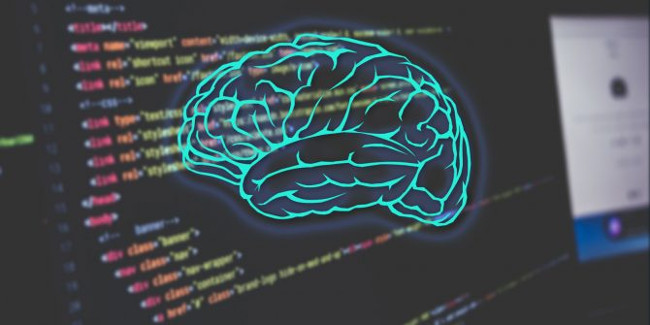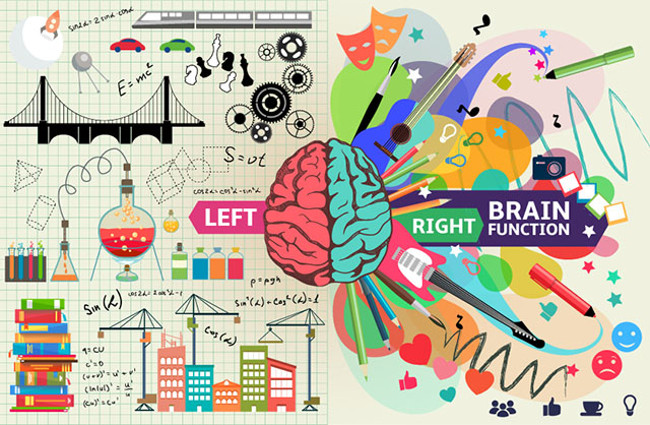How does programming affect our brains?
- Top 20 free programming learning websites need to bookmark immediately!
- 75 great user interface design ideas you need to know - Part 1
- How to become a good software developer?
The truth is: Programmers often think differently than people.
Not all developers need to be smarter, think more logical or rational than others. But scientists have recently begun studying the programmers' brains and made some interesting conclusions.
Just as art can shape your mind in different ways, programming also affects the way you think - perhaps in a way you don't expect.
Let's TipsMake.com find out how programming affects our brain in the article below!
1. Code oriented your mind models

Does this relate to the choice of your first programming language? - The answer is yes.
Does this seem not "fair"? After all, most of us know the first programming language at school and we don't have the opportunity to choose our own programming language. I - the author of the article, started with the C programming language. Older people may start with FORTRAN, COBOL or BASIC. And you, must be a new programmer in the profession? You can start with Java or Python.
There is no doubt: The design of programming language shapes the way you think.Edsger Dijkstra , one of the most influential computer scientists in history, said this when he said:
" The tools we use have a profound (and related) impact on the habit of thinking everyday and therefore, affect thinking ability ."
Edsger Dijkstra continues to say:
" COBOL use paralyzes the mind. Therefore, its education should be considered a criminal crime ."
And:
" In fact, it is not possible to teach good programming to students who have been exposed to BASIC: as potential programmers have been 'hurt' mentally beyond the ability to recover hope.
In a sense, all programming languages are capable of being equivalent to the Turing-complete programming language. But in another sense, mastering a language can lead to the destruction of another language. Java programming and Python programming are two different beasts, they approach the code in two completely different ways.
In other words, the models and idioms of the first programming language affect and even show how you think about data structures, algorithms, etc.
Indeed, it can actually take anonymous code and determine who wrote it based on the task approach and how to write code. The more difficult the task, the "de-anonymize" the easier.
See this article on stylometry code [PDF] and a description of code stylometry lessons:
" Developers may misunderstand their variable names or functions, but not the structures that the subconscious they want to use or their favorite incremental operators ."
In English, we have a proverb that expresses this in a understandable way: " When you have a hammer, everything is like a nail ." Likewise, when you have learned how to program something, often shape thinking about all issues that way.
So when choosing a programming language, be smart and careful!
See also: Top 7 IT-related jobs without code
2. Code helps strengthen brain health

People often say that the brain is like muscles and you need to exercise if you want to keep your sensitivity. Is that really true? And if so, is programming considered a mental exercise enough to affect brain health?
A 1991 study looked at " the impact of computer programming on cognitive outcomes " and found that students with computer programming experience scored 16 percent higher than other students in the study. Test of cognitive ability.
A larger study in 1999 found and confirmed that " brain-related activities serve to combat cognitive decline ", but also noted that cognitive decline may lead to less involved in intellectual-related activities.
A larger study in 2009 came up with a similar conclusion, suggesting that " people involved in brain stimulation activities in subsequent years may reduce the risk of cognitive decline (and even Releases the emergence of Alzheimer's disease and other dementia "including reading, writing, quizzes, card games, chess games and music listening.

Finally, a study published in 2013 found that only certain categories really affect the brain's sensitivity, which is high cognitive activities including learning and difficulties. wisdom.
Of course, more research is needed but it's hard to think of any cognitive activities that require more learning and practice than programming.
Although no research has shown that intellectual engagement activities make you smarter or more capable, they show that highly-aware jobs will at least help significantly improve health and prevention. bad impact on nerves.
It's never too late to learn programming like an 82-year-old female programmer in Japan and these studies only serve to reinforce our position. Programming is good for you!
See also: 10 useful tips for new programmers
3. Code not Math and Logic

According to a 2014 study, using fMRI scans to observe brain activity while programmers try to work and understand the code, five different positions of the brain involved in understanding the source code:
- THREE 6 : Middle forehead (Attention, language, working memory)
- BA 21 : Mid-solar regression (Revoke semantic memory)
- BA 40 : Lower sub-lobes (Working memory)
- BA 44 : Lower forehead (Working memory)
- BA 47 : Lower forehead (Language, working memory)
This means working through source code primarily using parts of the brain that often involve handling language, memory and attention.
It is worth noting that brain regions are often associated with math and computation, which is only registered - even when understanding the code relating to loops, conditions, arithmetic and other algorithms.
Of course, this research is incomplete and researchers admit more:
- The code in the test under 20 lines of code and time limits, meaning that they are not difficult enough to challenge topics.
- Evidence does not show that programming languages are like foreign languages, only that they relate to similar areas of the brain.
- Threads that do not write any of their code, may involve different areas of the brain rather than trying to understand existing code.
However, this is what we can see:
We know that programmers often review the source code, whether it is self-written code or someone's proprietary code. Moreover, developers often spend more time fixing and refactoring code than writing new code.
Therefore, this study is not meaningless. Programming is not just a "left hemisphere" activity and may even argue that the right hemisphere programmers also see this.
How to become a better programmer?
Programming skills don't come easily, but it will come if you work hard. Check out our tips for mastering programming languages or articles:
- Form a way of thinking like a programmer
- 27 things I wish I knew before programming
- 11 basic principles that every programmer should follow
- 8 websites that help programmers practice coding skills
Having fun!